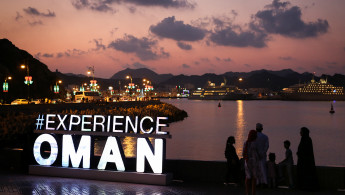'Arabian Peninsula's hidden jewel': Oman's ambitions to cash in on tourism
At the foot of the Nakhal Fort in north Oman, a group of ten young women stand in a circle around a man dressed in a dishdasha, the long robe worn by Arab men.
"What will you say when tourists get out of the car?" Bader Thuhli, a hospitality professor at Oman Tourism College (OTC), the country's only academic institution specialising in tourism, asks the women.
"Provide them with advice. The tourists you will guide are often elderly, don't hurry them," he tells them.
Over the past five years, the number of OTC full-time students has doubled to 818 as the tourism industry in Oman has grown by more than five percent per year, reaching 3.3 million tourists in 2017, up one million from a decade earlier.
"Before, many students would have enrolled by default due to a lack of achievement in studies, but today the perception has evolved," Thuhli adds.
500,000 jobs
Since its establishment 15 years ago, the Ministry of Tourism has been encouraging a phase-by-phase growth to promote the country as a hidden jewel at the tip of the Arabian Peninsula. But time is running out as a steep drop in oil prices since 2014 has dramatically damaged the Gulf Cooperation Council's [GCC] economic stability.
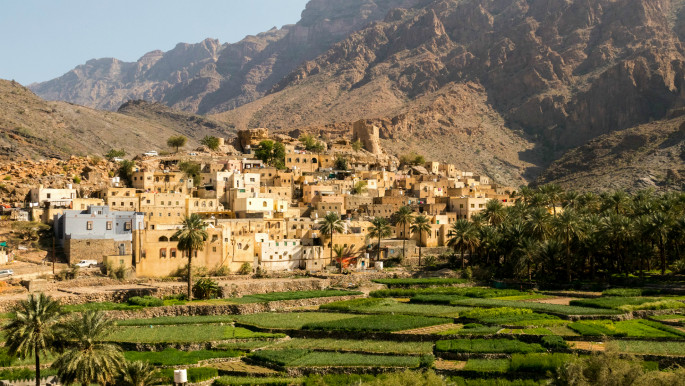 |
|
| Read also: A green future: Oman blazes a trail for environmentalism in the Arab world |
Tourism has therefore become a key contributor to the growth of the non-oil economy while Oman bets on the sector to tackle a severe unemployment crisis and generate 500,000 jobs by 2040. Among these, 70 percent will be allocated to Omani nationals – a long-term strategy reaffirmed by the Sultan of Oman at the occasion of the 46th National Day to offer career opportunities to the young.
"A $110 million hotel would create 300 jobs, just like a $7 billion oil refinery," Salim Aday Al Mamari, the Director General of Tourism Promotion, said enthusiastically. Yet, Oman remains highly-dependent on hydrocarbon revenues, which accounted for 55 percent of state revenues in 2017.
Even if the tourism industry is expected to account for six percent of Oman's GDP by 2040, "the comparison between the oil sector and the tourism industry is not yet sustainable," Shaul Gabbay, an expert on the Arab world told The New Arab.
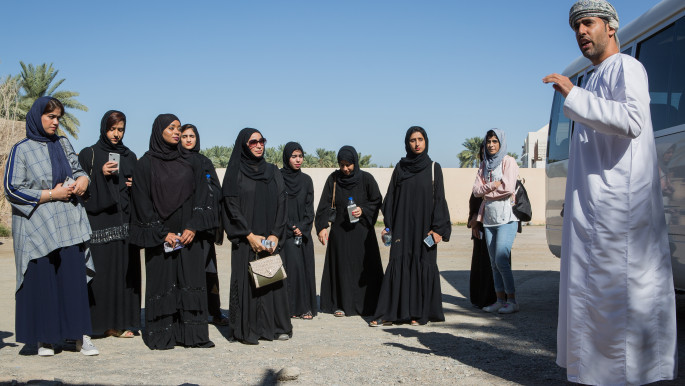 |
|
| A group of female Omani diploma students practice tour guiding with Bader Thuhli, a professor of tour guiding at the Oman Tourism College, the only college in the Sultanate of Oman that specialises in Tourism & Hospitality [Sebastian Castelier] |
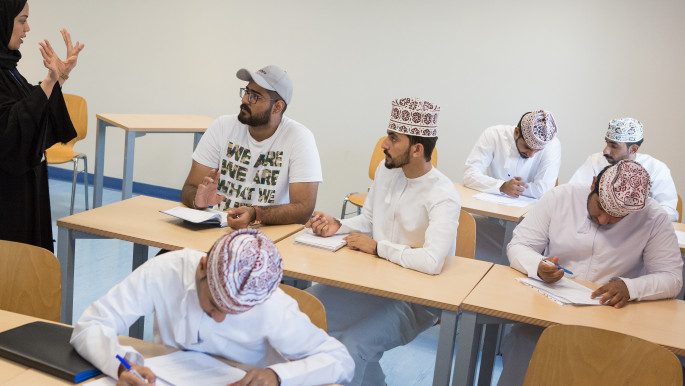 |
|
| Omani students attend a lecture at the Oman Tourism College [Sebastian Castelier] |
Oryx vs oil
In fact, revenues from tourism cannot replace the massive profits generated by the hydrocarbons industry. Located in the desert plains of central Oman, the Al Wusta's Wildlife Reserve has undoubtedly become a symbol of such dichotomy.
Once registered on the UNESCO's World Heritage List for preserving wild Arabian Oryx, an emblematic animal of the Gulf region, the reserve was revoked after its size had shrunk by 90 percent to conduct oil exploration.
 |
Once registered on the UNESCO's World Heritage List for preserving wild Arabian Oryx, an emblematic animal of the Gulf region, the reserve was revoked after its size had shrunk by 90 percent to conduct oil exploration |  |
Nowadays, hotels operating near to the area are either empty or booked by foreign workers mainly.
"There are only a few tourists in here, three or four per day maximum," said Tareq, 38, an employee at the Haima Arabian Oryx Hotel.
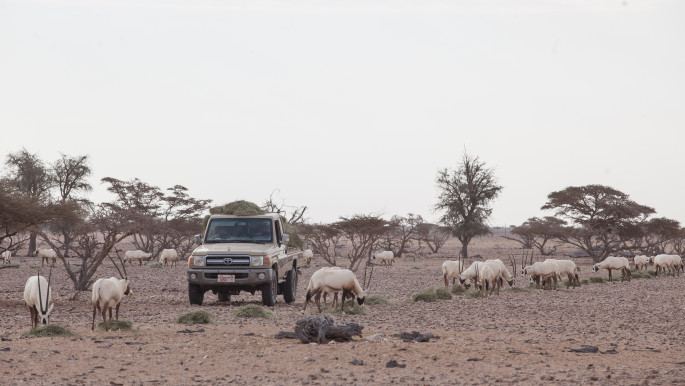 |
|
| Arabian Oryx in the rocky desert areas of the Al Wusta Governorate in central Oman [Sebastian Castelier] |
Selective quality tourism
To be distinguished from other touristic spots in the Middle East region, Oman bets on mind-blowing natural areas, ranging from spectacular mountains, wind-blown deserts and a 3,165 kilometres long pristine coastline.
"Our slogan is 'beauty has an address,'" said Al Mamari.
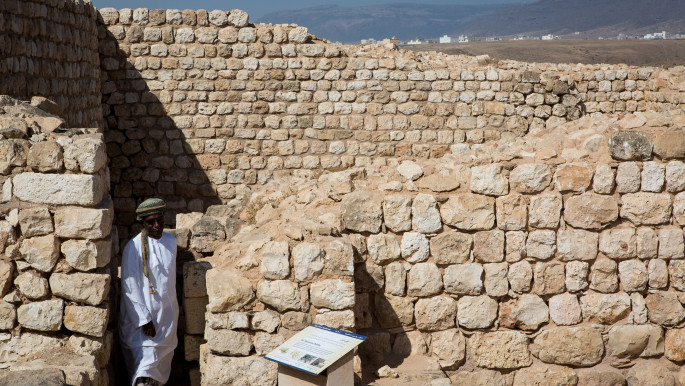 |
|
| An Omani tour guide makes the visit of Sumhuram Old City, an ancient south Arabian archaeological site near Salalah [Sebastian Castelier] |
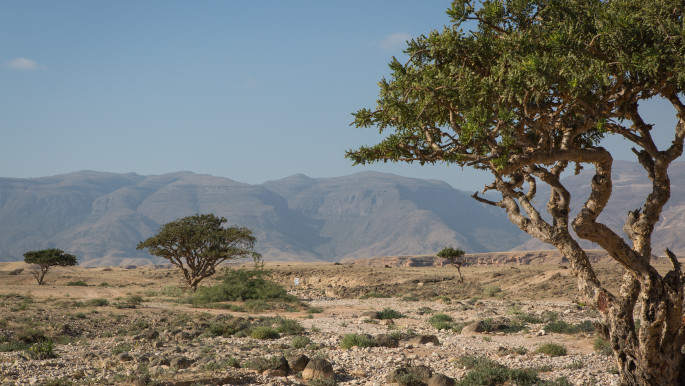 |
|
| Trees of the genus Boswellia can be see in Southern Oman. Their aromatic resin is used in and perfumes called Frankincense [Sebastian Castelier] |
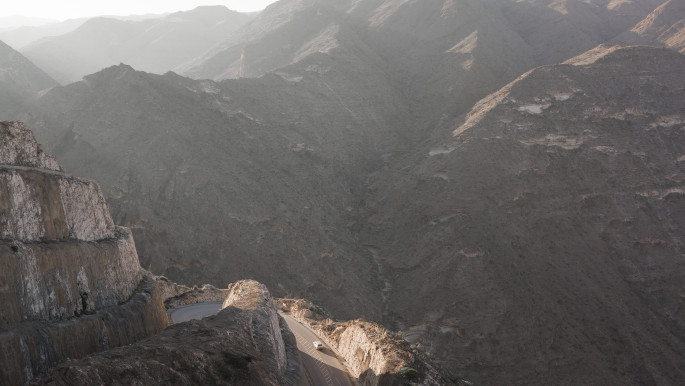 |
|
|
A car drives across the Dhofar Mountains in Southern Oman [Sebastian Castelier] |
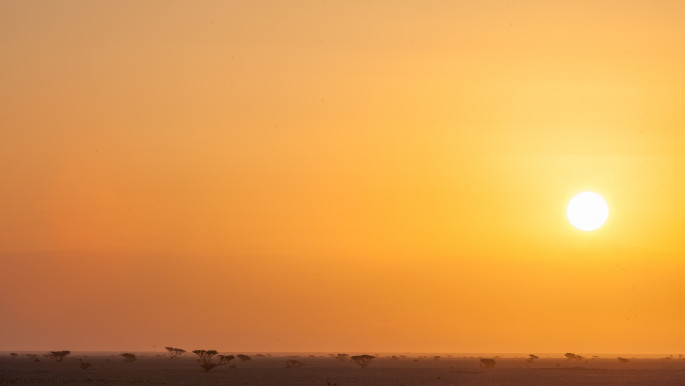 |
|
| Sunrise over the rocky desert areas of the Al Wusta Governorate in central Oman [Sebastian Castelier] |
Regarded as destructive to the Omani identity by the authorities, mass tourism is being carefully avoided. According to Oman expert Marc Valeri, the government aims to promote 'selective high-quality tourism reserved for wealthy, easily controllable Western elites.'
 |
According to Oman expert Marc Valeri, the government aims to promote 'selective high-quality tourism reserved for wealthy, easily controllable Western elites' |  |
A policy that is not to everyone's liking as many are not willing to compromise their age-old traditions to comply with the economic diversification underway.
"Certain segments of the population are afraid of getting in contact with foreigners because they think that it might change their mentalities, come up with new thoughts and ideas,"Al Mamari said, mentioning that the Tourism Promotion's awareness department work round the year to prove local communities that the fast-growing industry is not going to harm but to benefit.
Valéri, doubtful, believes that Oman has 'not yet found the right balance' between preservation and growth to take advantage of its enormous potential.
Quentin Muller is a French journalist. Follow him on Twitter: @MllerQuentin.
Sebastian Castelier is a journalist reporting from the Gulf region and Iraq. Follow him on Twitter: @SCastelier
